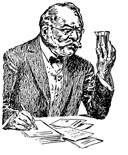
The Meaning of Wisdom
AGAINST UTILITARIANISM & HEART ATTACKS
Will Durant, the well-known historian and philosopher, once referred to three essential stages in man’s development: childhood, when one is engrossed in the rapturous realm of play; youth or adolescence, when one is intoxicated by the magic of love and romance and stirred by the opposite sex; and maturity or old age, when one is as preoccupied with the pursuit of wisdom as a child is with play or as a youth is with love. The love of wisdom can be as intent and as delightful as a child’s play or a young man’s fascination with young women.
In their love of wisdom and pursuit of this great goal, some of the best minds of the Western world have asked, “What is wisdom?” and “How can it be acquired?” Four illuminating answers to these questions come from books and authors recognized for their wisdom: the Book of Proverbs, a tale from Chaucer, a short novel from Samuel Johnson, and a medieval classic (Boethuis’s The Consolation of Philosophy). These four views of wisdom are in no way exhaustive or complete; they are central, distinctive, complementary views of wisdom, which is of course a multi-faceted subject.
The Book of Proverbs provides us with a striking analogy: a man pursuing wisdom is compared to a lover seeking his beloved. Wisdom is personified as a woman. “Be busy to seek her,” counsels the father as he addresses his son. From this metaphor we learn that wisdom needs to be sought and desired from the heart, just as the lover longs for the beloved. Wisdom does not come without effort or exertion; it is not given to the slothful or apathetic. Like the heart of woman, wisdom needs to be won. It requires courtship and wooing, sincerity and purity of intention. Wisdom, like the woman who smiles upon a man only when he has proven himself worthy and has revealed his true intentions, demands authentic desire and noble motives — the single-mindedness and devotion of a lover. Wisdom, then, begins with desire, requires perseverance, and demands high-minded intentions. When wisdom is found, according to the Book of Proverbs, she rejoices the heart of the seeker; she is a pearl of great price. “She is more precious than jewels, and nothing you desire can compare with her.”
In comparing wisdom with woman and love, the Book of Proverbs suggests, as the Greek philosophers taught, that wisdom is an end in itself, not a means to an end. The distinction is crucial. Work is a means to an end, money is a means to an end; however, health, beauty, love, and play are ends in themselves which go beyond utility: They are the very reasons why we work or need money. That is why Durant compared the pursuit of wisdom to the play of children. Accordingly, the ancient Greeks taught that work exists for the higher end of leisure. Wisdom, therefore, is not a stepping stone, not power in the sense of ability to manipulate or control things or people. Rather it is, in Augustine’s words, “rejoicing in the truth.”
You May Also Enjoy
The Bishop Has No Clothes... Six-Year-Old Man-Child... Saggy Pants Ban... Getting Lit Up... Boy Toys for Girly Girls... Building a More Genuine You... Snap Judgment... In Pasta They Trust... Zombie Christmas... Star Wars Christmas... Stressed Out by White Jesus... DaVinci's Landing Pad... Mystery Makeover... Your 2015 Word of the Year
We ought to be hearing words like sin, repentance, salvation, contrition, and mercy; instead we hear about healing, closure, and the everlasting committees and guidelines.
John Allen insists that while the Dutch tolerate vice, they don't necessarily approve of it.

